If you or someone you care about is struggling with addiction and is now undergoing professional treatment, you may be worried about participating in a group therapy program. That’s a normal response to this form of therapeutic care. People are often initially wary of speaking up in group therapy sessions. The thought of talking about your problems with strangers can be intimidating and may not feel safe for some. However, many people are pleasantly surprised by how much they end up liking group therapy programs and how much they get out of them.
Group therapy has become a staple in most high-quality addiction treatment programs. It’s an effective way of treating more clients at less cost, and many studies show that it’s just as effective as individual therapy, particularly for treating substance use disorders and their many co-occurring mental health issues. Searching for a group therapy program in Athens, Georgia? Contact Athens Addiction Recovery Center today. Call 844.959.4998 or reach out to our team online.
What Are the Benefits of Group Counseling for Addiction?
1. You Learn That You’re Not Alone
When you participate in group counseling for addiction, even if you don’t speak up at first, you’ll soon learn that your experiences aren’t unique. In group therapy sessions, you’ll see that you have peers that will understand what you have been going through as someone in addiction recovery.
It’s common for people with substance use disorders to feel ashamed, depressed, and isolated. Addiction can make you feel alone and worthless, which is why clients participating in group therapy are often relieved to discover they aren’t alone. When they learn that others have had similar experiences, they may finally be motivated enough to talk about what’s been happening to them.
In addition to learning that you’re not alone, group therapy may also help you feel more connected to others—this is one of the most important aspects of overcoming addiction. Finding a genuine connection with the group can give you a sense of purpose and significantly relieve the stress you feel.
2. Your Communication Skills Improve
Another benefit of group counseling is that it improves a client’s communication skills. This is essential, not only because psychotherapy thrives with great communication, but also because poor communication skills may impact every area of a client’s life. Poor communication skills can lead to:
- Interpersonal conflict
- Increased stress
- Challenges in recovery
Group therapy improves communication skills because all clients are engaged in listening and understanding. Not only will clients sharpen their listening and empathy skills, but they will also see how others misinterpret what they say. These misinterpretations will gradually teach them how to communicate more clearly.
3. You Get a Broader Range of Feedback
When a client participates in individual therapy sessions, they get feedback from their therapist. But when they participate in group therapy sessions, they get feedback from both their therapist and their peers.
Self-image is always a distorted concept when someone is thinking about it only through their perspective. People mostly understand themselves better through interacting with others. Group therapy is a rare opportunity for clients to understand themselves better in a safe and secure setting.
There’s also power in feedback that’s from a majority. You may resist your therapist’s suggestions in individual therapy. But in group therapy, when your therapist and several group member agree that you’re behaving irrationally, you may be more likely to take that feedback more seriously.
4. You Can Practice New Cognitive and Behavioral Skills
Much of addiction treatment is about learning new cognitive and behavioral skills that can help you live a sober life after formal treatment ends.
For example, one important skill in many forms of addiction therapy is recognizing and challenging distorted patterns of thought. It can be difficult to find opportunities to practice these new skills in real life because when you’re under stress, you may tend to fall back into more familiar patterns. Group therapy can be a safe and secure environment for experimenting with new ways of thinking and interacting—group members can practice these new skills with each other.
5. Your Therapist Can Observe How You Interact With Others
While group therapy allows you to get a broader range of feedback, it also allows your therapist to see how you interact socially. They may even be able to observe you practicing the new skills you’ve learned in individual therapy.
Do Support Groups Provide Group Counseling?
Going to support group meetings is not the same as participating in group therapy sessions. Group therapy is a specific type of mental health treatment that brings together clients with similar conditions under the guidance of a licensed mental health care professional. A support group meeting may be led by someone that’s not a medical professional, at all.
A support group membership isn’t a substitute for regular medical care. However, it’s important to let your primary care physician know that you’re participating in a support group. And if you ever think that a support group isn’t providing you with the appropriate support you need, your physician can help you find support through other means.
Find Out More About Athens Recovery’s Group Therapy Program
If you’re looking for a group therapy program in Athens, Georgia, contact Athens Addiction Recovery Center today. Reach out to our team online or call 844.959.4998.

